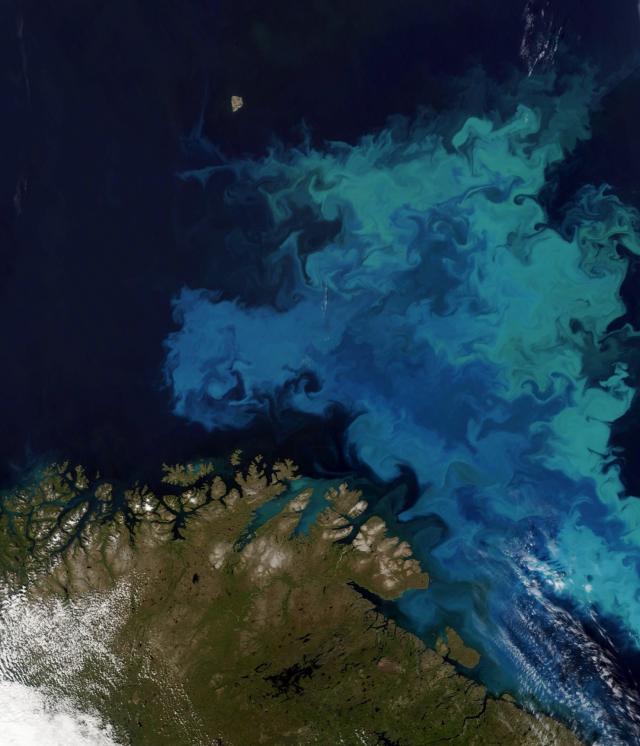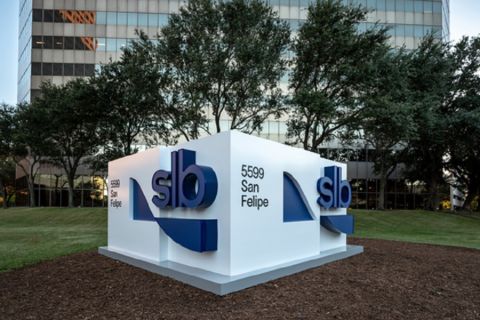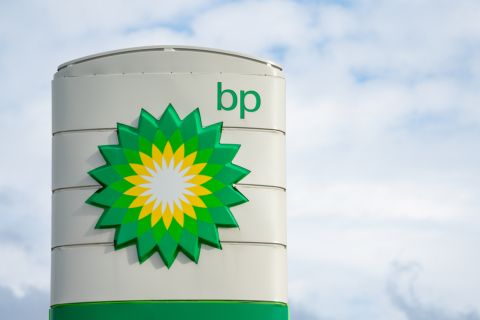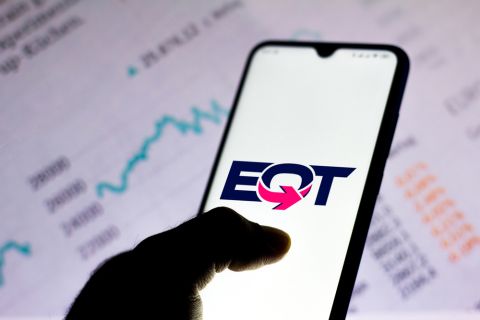
Satellite image of part of the Barents Sea (courtesy of CGG; MODIS data courtesy of NASA).
CGG’s Satellite Mapping group recently completed an innovative high-resolution hydrocarbon seeps study commissioned by the Norwegian Petroleum Directorate (NPD), it said on Jan. 12. The aim of the study was to increase petroleum system knowledge across a relatively data-poor area of the northern Barents Sea.
CGG Satellite Mapping has over twenty-five years of experience in the detection and characterization of offshore seeps and slicks based on its expert remote sensing processing and analysis of Synthetic Aperture Radar (SAR) satellite imagery. To meet the requirements of the study, CGG Satellite Mapping custom-tasked next-generation SAR satellites to acquire a large collection of high-spatial-resolution SAR imagery at a high revisit frequency. Subsequent advanced processing and analysis by its experts identified the presence of small-scale naturally occurring seepage slick features, unlocking valuable subsurface intelligence.
“By applying our world-leading remote sensing knowledge to imagery delivered by the latest satellite missions our Satellite Mapping group provides clients with previously unobtainable insights into the presence and behavior of natural seepage in offshore environments,” Richard Burren, director of satellite mapping at CGG, said. “These studies hold great value for increasing geologic system knowledge and decreasing risk, which is of particular interest across marginal areas of mature basins at present. They also complement our Seep Explorer product, the industry’s only integrated global onshore and offshore seeps database for regional-to-target subsurface source de-risking.”
Recommended Reading
PHX Minerals’ Borrowing Base Reaffirmed
2024-04-19 - PHX Minerals said the company’s credit facility was extended through Sept. 1, 2028.
SLB’s ChampionX Acquisition Key to Production Recovery Market
2024-04-19 - During a quarterly earnings call, SLB CEO Olivier Le Peuch highlighted the production recovery market as a key part of the company’s growth strategy.
BP Restructures, Reduces Executive Team to 10
2024-04-18 - BP said the organizational changes will reduce duplication and reporting line complexity.
Matador Resources Announces Quarterly Cash Dividend
2024-04-18 - Matador Resources’ dividend is payable on June 7 to shareholders of record by May 17.
EQT Declares Quarterly Dividend
2024-04-18 - EQT Corp.’s dividend is payable June 1 to shareholders of record by May 8.





